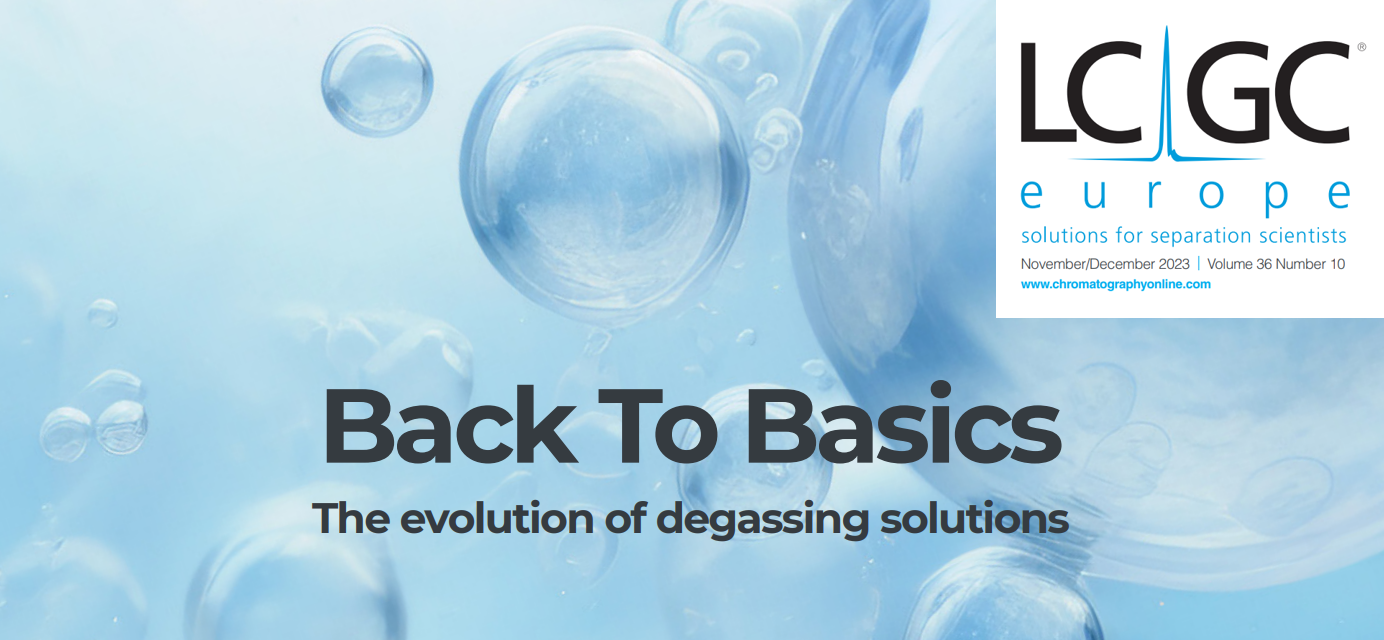
Troubleshooting degassing problems in HPLC
Recently, the magazines LCGC North America & LCGC Europe published an updated assessment of how issues with bubble formation are being dealt with in liquid chromatography systems. The text was authored by Prof. Dwight R. Stoll, editor of the recurring “LC Troubleshooting” column at chromatographyonline.com.
“a gas bubble can cause one or both of the check valves in a high-pressure pump to fail, causing a highly erratic flow or no flow at all”
This article highlighted the problems associated with bubbles inside HPLC instruments and affirmed that “a gas bubble can cause one or both of the check valves in a high-pressure pump to fail, causing a highly erratic flow or no flow at all”. It was also declared that the main practical cause of bubble formation in systems with low-pressure mixing is when “two solvents are brought together to make a mixture (here, the mobile phase) that has a lower gas solubility than either of the individual solvents alone”.
It was furthermore stressed that outgassing and bubble formation may also occur after the HPLC separation column and cause issues with irregularities in the detection. Specifically, the text stated that “as the pressure drops towards atmospheric pressure at detector, bubbles may form when the gas concentration reaches the solubility limit in the mixed solvent”, and “If bubbles form in an optical flow cell… …this can lead to unstable baselines, including spiking patterns”.
“inline vacuum degassing has become the dominant means of degassing used in LC instruments today”
Finally, the article compared strategies for removal of gases, such as sparging, sonication, offline vacuum degassing, and inline vacuum degassing. The author concluded that the robustness and ease of use, strongly favoured inline vacuum degassing, and that “inline vacuum degassing has become the dominant means of degassing used in LC instruments today”.
Download and read the full article below or follow the link to learn more about modern inline degassing solutions from Biotech Fluidics.

